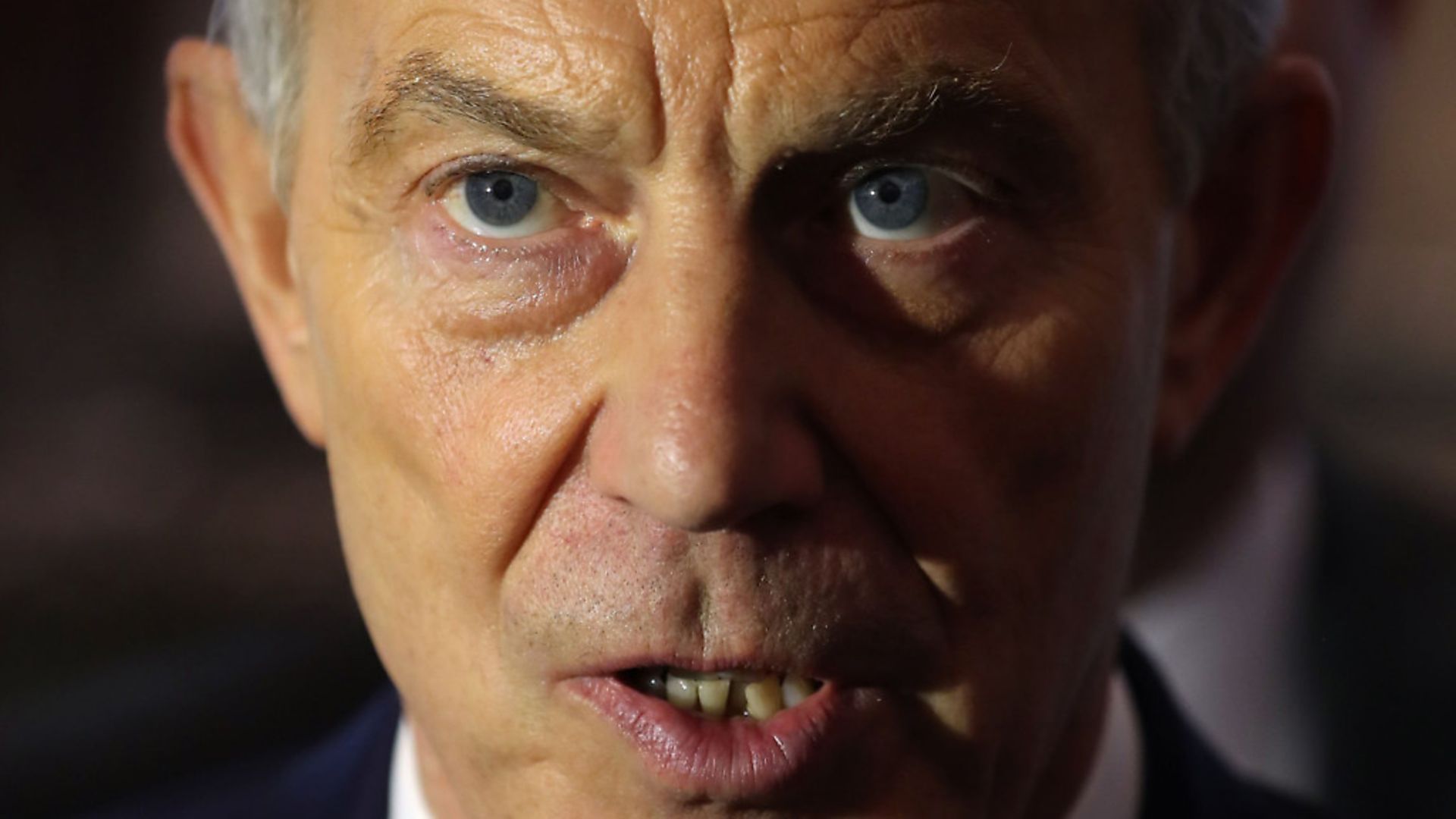
The failure of the European cause in Britain has many fathers, says PETER MILLAR, including some who might seem to be among ‘the good guys’.
It was, the Prime Minister said, ‘a tragedy’. ‘Too many politicians have consistently failed to appreciate the reality of European integration and in so doing they have failed Britain’s interests.’ That wasn’t the half of it.
The year was 2001, the prime minister was Tony Blair, still exuberant from coasting to a second term in office. He was in favour of joining the euro, even confident that he could win over the public in a referendum on the issue a few years down the line.
Blair was absolutely right about the failure of British politicians on Europe. The problem would be – as I suspect he has now bitterly realised – that he was one of them. But he was not the only one, not even among those who are today vociferous Remainers, fighting a Brexit they might have stopped the country sleep-walking into. They were, after all, the ones asleep at the wheel.
The include, amongst others, not just Blair, but his successor, Gordon Brown, plus former deputy prime minister Nick Clegg. All of them extolled what they said was better for Britain in Europe, but chose what they thought was better for them. Wrongly in each and every case.
Above and beyond putting Britain ‘at the heart of Europe’, Blair’s real agenda was to put himself at the centre of international affairs. Despite the speech quoted above, that had been changed by 9/11, and he decided – like so many of his predecessors – that the centre now was the US.
That meant George Bush, and he floated rapidly into his orbit. As a result, instead of advancing British influence in Europe, Blair will be remembered for the disastrous Iraq War, just as David Cameron will be remembered for his disastrous referendum.
Most European leaders had been delighted when Blair entered Downing Street with a positive agenda, but were disappointed how little of it was ever enacted. His most significant action in Europe contributed a decade later to Brexit: generously allowing the population of eight new Eastern European states unfettered access to the British labour market.
But beyond Iraq and opening the immigration doors wider than most other EU states, Blair’s negligence on Europe was also influenced by his fractious relationship with rival Gordon Brown, which led to giving him his head on matters about which they held very different views.
Annoyed at being pipped to the party leadership, which meant it was Blair not he who became Prime Minister in 1997, Brown, appointed Chancellor of the Exchequer, immediately took steps to defend his powerful fiefdom. He devised ‘five economic tests’ to be carried out by Treasury civil servants who, like their master, the Chancellor, would lose much of their power and influence in a single currency.
The ‘tests’ were based on hypotheses which could by definition only be tested once the euro was up and running, and meaningless before. Unsurprisingly the Treasury decided almost immediately that four of the five would be failed.
Equally unsurprisingly, by the time Brown announced his decision in 2003, with the euro established in its early days, they failed again. When the euro crisis erupted simultaneously with the global financial crisis in 2008, it appeared Brown had been justified.
What had happened was one of the hypotheses which had been foreseen for what might today be called the ‘implementation stage’. But it had been made worse by the decision to allow Greece to join even though it was widely acknowledged that its books were cooked, and regretted by nearly all European leaders afterwards.
By joining, Brown would have been in a position to veto Greek membership, enhancing his reputation as a consequence, while the euro would have been strengthened by UK membership.
Brown is still credited with being the architect of an economic lucky escape, but that increasingly appears more boast than ballast. Since the Brexit vote the pound has been devalued with no corresponding gain in exports, while the euro has become the second global currency. The eurozone economy is growing faster than the UK’s.
Brown’s second unintended anti-European move was a knee-jerk reaction to paranoia over immigration and the ever-present ‘security situation’ by instituting what has become an semi-paramilitary ‘Border Force’.
Almost overnight entering Britain was transformed from flashing a passport at a civil servant in a suit, to something more equivalent to what I remember from crossing the Berlin Wall: a stern-faced, decidedly unwelcoming army in uniform.
It was a direct challenge to the open borders of the Schengen agreement, from which the UK also demanded an opt-out (obliging Ireland to follow to maintain the open border with the North).
Nick Clegg’s failure was primarily personal. The man who could have been Britain’s best representative in Europe – with his experience in Brussels, his Spanish lawyer wife and knowledge of Dutch, French, German and Spanish – failed to insist on the post of foreign secretary when negotiating the 2010 coalition.
The foreign ministry is a routine demand for junior partners in European coalitions – as currently in Ireland and Germany – and Clegg should have held out for it even if it meant forcing Cameron to ditch his old friend William Hague, a eurosceptic who in any case did not complete his term in office.
Eager to get his party into government for the first time in more than half a century, Clegg was gullibly duped into the role of Deputy Prime Minister, a title with no actual government role or responsibility other than that granted from time to time by the Prime Minister. Cameron granted him precious little.
As a result, Britain missed the opportunity to have as its chief diplomat a man who could have spoken to many other Europeans in their own language, in more ways than one, and maybe have genuinely won friends and influence. Instead the UK now has a foreign secretary whose French may be passable but, like his English, is mainly used for insults.
Surprisingly one of the foremost political figures in Britain to consistently fight for common sense on Europe was a Tory prime minister: John Major put his own future on the line to ensure the passage of the Maastricht treaty in 1993, even resorting to calling member of his party, including three cabinet ministers, ‘bastards’.
He was right then, and he’s right now. All it takes for the bastards to succeed, is for the good guys to do not quite enough.







